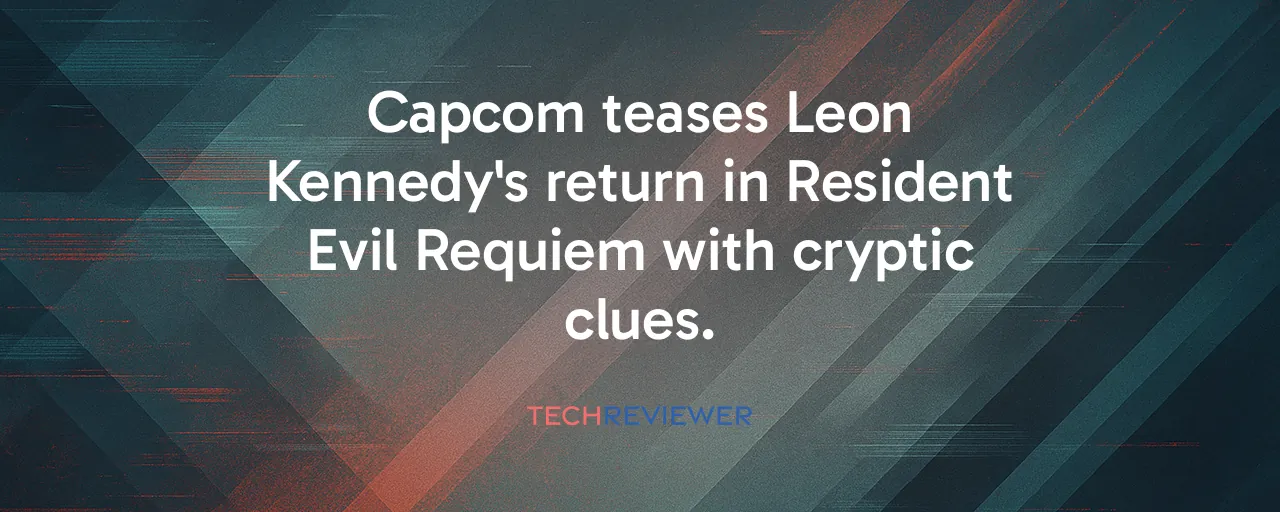The Art of the Tease
When Capcom dropped the first trailer for Resident Evil Requiem, fans didn't just watch, they dissected every frame. A cryptic post on X from leaker DuskGolem, shared on October 10, 2025, claimed franchise icon Leon Kennedy appears in two subtle ways, details that might only make sense later. This sparked a frenzy in the Resident Evil community, with players scouring the trailer for clues. Capcom's knack for planting hidden Easter eggs isn't new, but it's a masterclass in building anticipation without giving too much away.
The idea of Leon, the battle-hardened hero from Resident Evil 2 and 4, sneaking into the trailer fits Capcom's playbook. They've long used misdirection, like shadowy figures or fleeting glimpses, to keep fans talking. This approach keeps the community engaged, turning casual viewers into detectives. But it also raises a question: how does Capcom balance these teases with the need to control their narrative in an age where leaks spread faster than official news?
Why Leon Still Matters
Leon Kennedy, first introduced in 1998's Resident Evil 2 as a rookie cop facing zombies, has become a cornerstone of the series. His growth into a confident operative in Resident Evil 4 and 6 made him a fan favorite, blending grit with charm. DuskGolem's claim that players will spend more time controlling Leon than newcomer Grace in Requiem suggests Capcom knows his draw. Fans on X have already started debates, with some thrilled at his return and others curious about how he fits into a horror-focused game.
The director of Resident Evil Requiem has stated that Leon Kennedy is 'a bad match for horror,' adding a twist to his rumored inclusion. A seasoned character like Leon could undermine the vulnerability central to survival horror. Yet, Resident Evil 4 pulled it off by pitting him against overwhelming odds and scarce resources. Capcom seems poised to repeat this trick, perhaps using new environments or psychological threats to keep players on edge, even with a hero as capable as Leon.
Lessons From Resident Evil 4 and The Last of Us Part II
Capcom's approach with Leon in Requiem echoes their success with Resident Evil 4 in 2005. Back then, they transformed Leon from a rookie to a skilled agent, yet kept the horror alive with relentless enemies and tight resource management. The game's balance of action and tension became a benchmark for the genre, proving a competent protagonist can still feel vulnerable. Requiem's rumored dual-protagonist setup, with Leon and Grace, could build on this, offering varied playstyles to suit different players.
Naughty Dog's experience with The Last of Us Part II in 2020 offers another lesson. Leaks about key characters and plot points sparked massive backlash, yet the game's release still drew record sales. The controversy showed leaks can amplify hype but also fracture communities when expectations clash with reality. Capcom faces a similar tightrope with Requiem. By teasing Leon's role subtly, they fuel speculation while trying to preserve surprises, a delicate dance in today's leak-heavy gaming world.
The Leak Culture Conundrum
Leaks like DuskGolem's aren't just gossip; they're a force shaping how games are marketed. When the leaker claimed on October 10, 2025, that removing Leon from Requiem would cost Capcom millions due to production constraints, it highlighted the stakes. Changing a major character late in development means reworking levels, dialogue, and assets, a logistical nightmare. This reality underscores why Capcom likely planned Leon's role early, banking on his appeal to drive sales.
But leaks cut both ways. They keep Resident Evil in the spotlight, especially between official announcements, but they can steal thunder from planned reveals. Some fans relish the speculation, analyzing trailers for hidden clues, while others prefer the unspoiled thrill of Capcom's orchestrated drops. The Resident Evil community's passion fuels this cycle, but it challenges Capcom to stay one step ahead, using subtle trailer hints to keep players hooked without confirming too much.
Balancing Nostalgia and Innovation
Capcom's challenge with Resident Evil Requiem lies in honoring the past while pushing forward. Leon's inclusion taps into nostalgia, reassuring fans who've followed him for decades. But introducing Grace as a co-protagonist signals a commitment to fresh faces, crucial for a franchise nearing its 30th year. This balance mirrors broader industry trends, where studios like Square Enix with Final Fantasy weave legacy characters into new stories to keep long-time players invested.
The rumored dual-protagonist design, powered by Capcom's RE Engine, offers a chance to experiment with varied gameplay styles. Leon might handle action-heavy sequences, while Grace could lean into puzzle-solving or stealth, catering to varied player preferences. This setup risks splitting development resources, but if done right, it creates a richer experience. Capcom's track record with Resident Evil 2 Remake, blending Claire and Leon's campaigns, suggests they can pull it off, keeping fans old and new engaged.
